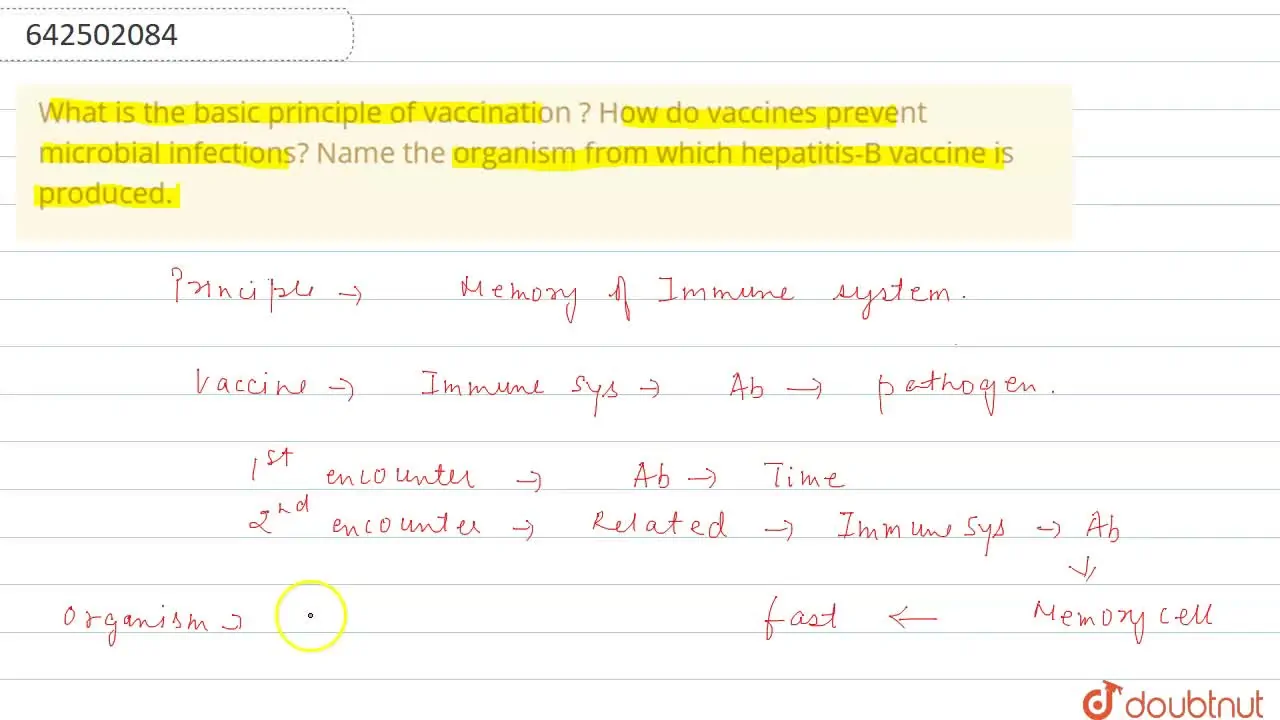What is the basic principle of vaccination ? How do vaccines prevent microbial infections? Name the organism from which hepatitis-B vaccine is produced.
The principle of vaccination is bases on the property of 'memory' of immune system.
In vaccination, a preparation of antigenic proteins or inactivated/live but weakened pathogens is introduced into the body. The antigens generate primary immune response by producing antibodies along with memory B-cells and T-cells.
When the vaccinated person is attacked by the same pathogens, the existing memory B-cells and T-cells recognise the antigen and overwhelm the invaders with massive production of lymphocytes and antibodies.
Hepatitis-B vaccine is produced from yeast.
Related Playlists
Similar Questions
What is basic principle of vaccination? How do vaccines prevent microbial infections? Name the organisms from which hepatitis B vaccine is produced.
View SolutionHepatitis B vaccine is produced from
View SolutionHepatitis B vaccine is a:
View SolutionHepatitis B vaccine is a:
View SolutionTrue statement about hepatitis B vaccine is
View SolutionGive the scientific name of the source organism from which the first antibiotic was produced.
View Solution(b) Name the source used to produce hepatitis B vaccine rDNA technology.
View Solution(a) If a patient is advised anti-retroviral drug, name the possible infection he/she is likely to be suffering from. Name the causative organism.
(b) How do vaccines prevent subsequent microbial infection by the same pathogen?
(c) How does a cancerous cell differ from a normal cell?
(d) Many microbial pathogens enter the gut of humans along with food. Name the physiological barrier that protects the body from such pathogens.View SolutionThe principle of vaccination is to produce immunity against a disease. Explain
View SolutionThe principle of immunisation or vaccination is based on which property of immune system
View Solution


